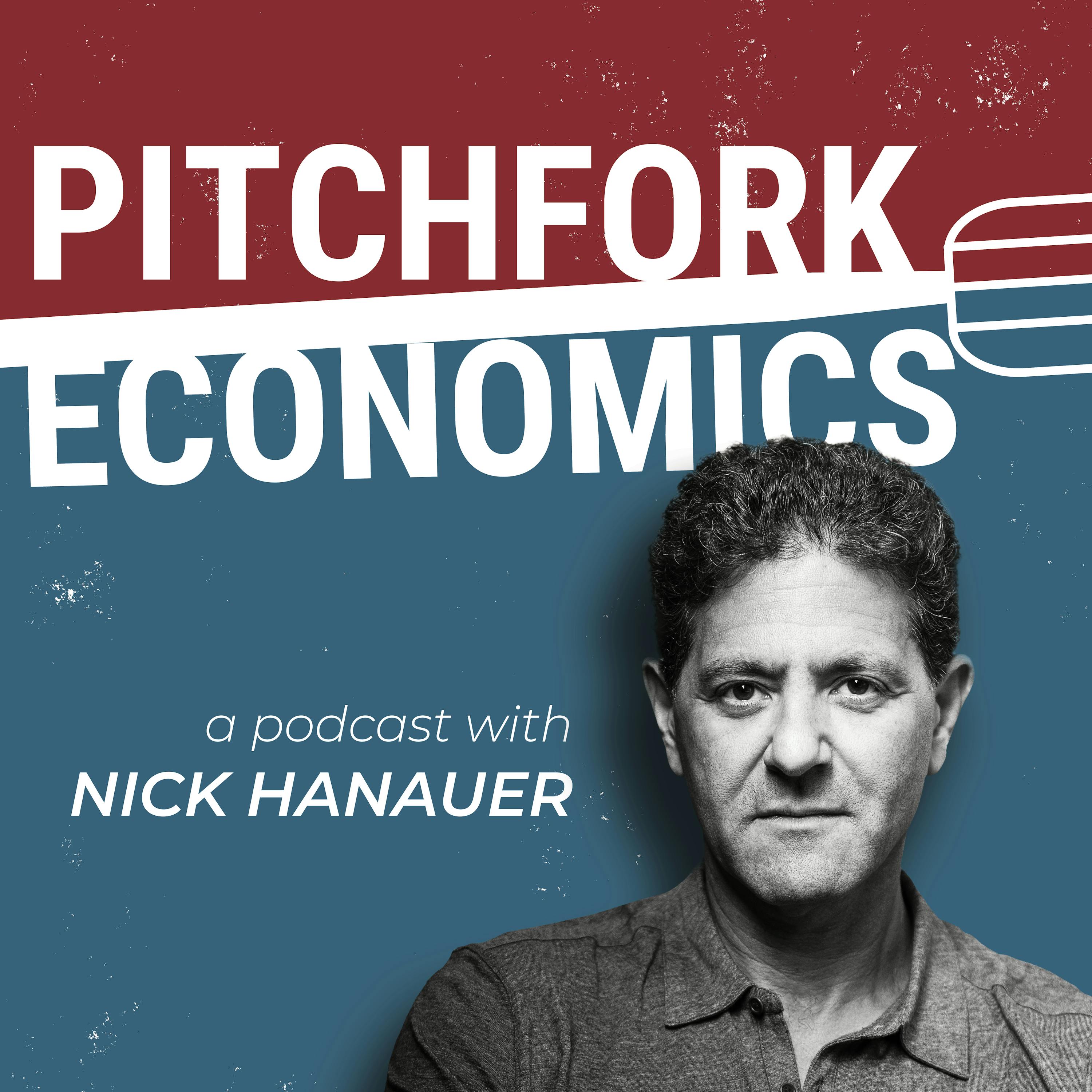
Scrood
Scrood is a satirical, light and easy Political Humor & Comedy information and mini documentary podcast about gett'n SCROOD by the system--facts & laughs covering as much as we can for free. Before the election, Scrood produced satirical content aimed at exposing corruption in politics, the supreme court and BIG, multinational business. Youtube, X, Pinterest and some podcast platforms throttled our show, making it unavailable to many. After our Holiday break, we will return to our society and documentary content.
Despite big tech companies from hiding our content, Scrood still reaches thousands of podcast listeners. Subscribe, follow and share our content to inform people about our unfair justice system and tax system, healthcare, housing, jobs and wages; toxins released in our food, water, soil and air. Together, we can beat the elite corporate giants and the politicians that protect them. Shout-out, subscribe and share.
https://scrood.buzzsprout.com/
We support democracy, human rights, civil rights, women's/reproductive rights, unions/worker rights, free healthcare for all, small business, small farms, fair share tax, justice equality, social security, medicare, affordable housing, clean environment; safe food, water, soil and air, and all things for the people.
BOOKS WE RECOMMEND:
NICK HANAUER
Corporate Bullsh*t: Exposing the Lies and Half-Truths That Protect Profit, Power, and Wealth in America
Gardens of Democracy: A New American Story of Citizenship, The Economy and the Role of Government
The True Patriot
ROBERT REICH
The System: Who Rigged It, How We Fix It
Saving Capitalism: For the Many, Not the Few
Aftershock: The Next Economy and America's Future
Supercapitalism: The Transformation of Business, Democracy and Everyday Life
Find all our Links, Listen, FAN text, or donate and subscribe for FREE on the above link. Or listen anywhere podcasts are available.
Subscribe for FREE on https://scrood.buzzsprout.com/
Amazon Music, Audible, Amazon Echo, iHeart Radio, Apple Podcasts, Spotify or anywhere you listen.
Listen on: Youtube.com/@ScroodFM/podcasts or Youtube Music
Listen, learn, laugh and get loud with us.
Occasional slaughterous scroodisms.
#satire #comedy #society #documentaries
#comedyshow #satirecomedy
Scrood
Trump on Trade, The Auto Industry and the Facts | Ethan's AI Updates | Scrood | S3
Trump, trade, the auto and manufacturing industry has been in trouble for decades, and so has the American worker, as well as most workers around the globe. Know the facts and get angry about how politicians, decades ago, scrood us all, and question why Trump did not fix it despite his promises. Biden and his administration fixed some of it and continues to do so. But why at this point, are we all scrood, including the higher educated, but that is another show. Watch on Youtube @ScroodFM, Listen on Spotify and Apple Podcasts. Thanks, Ethan
Ben Scrood and Elly Stone are the hosts of the Scrood podcast at Scrood FM.
Subscribe to Scrood FREE: Scrood, Website, Amazon Music, Audible, Youtube.com/@ScroodFM, IHeart Radio, Apple, Spotify, RSS, TwitterX, @ScroodFM
Ben and Elly are on tomorrow evening. I am Ethan, host of Ethan's AI Updates. Lets get started. Trump on trade, the auto industry and the facts. In 2017, We all remember Trump's tariffs on lumber, steel and aluminum, and billions in Chinese goods. He even implemented tariffs on our Canadian neighbors, increasing the cost to build a home by more than a third. The handful of companies that control lumber prices were raking it in, stocks soared, and tipped off investors were laughing all the way to the bank. Steel, aluminum and goods tariffs also increased the cost of vehicles significantly. Tariffs on steel and aluminum hurt most American manufacturers and had a net jobs loss, not a jobs gain. Canada, China and other nations slapped retaliatory tariffs on the United States, which Biden renegotiated, removing some and putting quotas on others that remediated the effects of Trumps haphazard tariffs. In addition, at the end of 2016, the Canada trade pact expired. When Trump got into office, he failed to negotiate a new trade agreement with them. Lumber prices increased by a third throughout the nation, and even more in California and in growing cities. Later in 2021, monopoly lumber corporations increased lumber prices even more due to a demand surge. Trump's trade war with China increased the prices Americans pay for goods while at the same time making manufacturing here less competitive by increasing cost of imputs, parts, components and materials used to build stuff. Because Trump's trade war was also with Canada and other countries. Those countries imposed their own Tarriffs and other measures, thereby, decreasing the demand and export of American manufactured goods and farm products like corn, cotton and soy. The rest of the world did not impose tariffs which made their manufacturing more competitive than ours. Trade shifted, and other countries began replacing American goods with others made or grown in competing countries, decreasing our exports all over the world. Years later, after Trump imposed tariffs from ten to twenty five percent, Trump signed a phase one agreement with China. China renigged on a massive scale, taking then President Trump on a ride of up yours. In addition, when the 2016 Canada trade pact expired, trump failed a new trade agreement; just like he failed with China. To make matters worse for Americans, monopoly corporations took this opportunity to raise prices even more, fleecing the American public. Then Covid 19 hit and corporations continued to hike prices, blaming supply chain for home costs rising, and food prices soaring even though the United States produces most of our beef, pork, chicken, eggs, grain, animal feed, alfalfa, vegetables, fruits and nuts. Corporate profits increased, executive pay increased and shareholder value increased, and the profits of big banks and world investors increased. I hate to say this, but I knew that extremely high tariffs on foriegn cars should have been implemented in the eighties in an effort to assist the big three and save American jobs now and in the future. Tariffs on furniture, mattresses, appliances and electronics should have been implemented as well. If China wants to manufacture clothing, cardboard boxes, balloons, and plastic trinkets, so be it. But the high dollar products should have been protected and manufactured here. But in the eighties, Reagan and congress would have none of that. But at this point, Economic Nationalism is not the answer. There are only a few hundred million people in the United States, but over eight billion in the world. Do you really think that we can put a big enough dent in Chinas exports? Hell no we can't. So we should have not allowed a trade deficit to begin with, nor allowed high end products, like appliances, that provided good paying jobs with benefits to be cheaply made in another country and imported here in the United States. However, we manufacture tons and tons of chemicals, fertilizers and pharmaceuticals here in the United States and do not require companies to safely dispose of it. Another consideration is the high environmental cost of shipping goods across the world rather than building them in the purchasing country. Crazy. However, a positive effect regarding trade is that it decreases the risk of war. In addition, people that tout cheaper products don't understand that a cheap price does not matter if American workers can not afford to buy them, and have to buy the inferior product over and over again. If paid the wage we should be paid, a higher priced, quality product that was made in America would be enthusiastically purchased. Not only that, so called experts do not take into account the real costs of cheap products, like pollution produced by shipping, and cheap, disposable products dumped everywhere across the globe, higher unemployment, a lower GDP, and working Americans having to rely on foodstamps, medicaid and the wick program, putting a larger burden on our governments' programs and us as tax payers. By the way, appliances, television sets and stereos once lasted for thirty years, sometimes more. Wooden furniture lasted for lifetimes and sofas and recliners for a decade or two. Now cheaply made, imported appliances are disposable, like our electronics and automobiles. Decades ago, Politicians could have regulated big corporations, made it unprofitable for companies to go to China or other countries by imposing both incentives not to manufacture in foriegn countries, and implement a fiscal punishment like a high tax rate for companies that chose to manufacture elsewhere, like China, India or Mexico. Moreover, law makers could have disallowed American corporations from moving their headquarters to tax haven countries to avoid paying American corporate taxes. Our trade agreement is not so forthcoming either. For example, trade that Trump kept in place when he bragged about renegotiating NAFTA, uses terminology like manufactured in North America which includes the United States, Canada and Mexico. What Trump's U.S.M.C.A. changed for duty free auto trade with Mexico was to only raise the percentage of an automobiles parts by several percentage points more than that of the already in place, NAFTA, to qualify for tariff free treatment. My point is that automobiles, appliances, electronics, mattresses, furniture and more will be manufactured South of the border. I hope the U.A.W. thoroughly addressed this in their recent negotiations. ignoring the sounbites, Trump's U.S.M.C.A. is basically the same as NAFTA. Auto manufacturing flourishes in Mexico with not only American brand cars and trucks, big rigs and motorcycles, but also German, Japanese, Swiss and Chinese branded auto makers hunkering down in Mexico. Another thing, without defining trade boundaries, Economically, North America is considered by many to stretch to the Panama Canal. In the future, this could play a negative role in trade and the American worker. What do you think? I want you to digest and think about what I have discussed. Comment below how trade has affected your life. If you like my show, check out Ethan's AI Updates at Scrood. Spelled S.c.r.o.o.d. Thanks
Podcasts we love
Check out these other fine podcasts recommended by us, not an algorithm.
David Feldman Show
David Feldman
Pitchfork Economics with Nick Hanauer
Civic VenturesThe Resistance Report with Robert Reich
Inequality Media
Hysteria
Crooked Media
The Coffee Klatch with Robert Reich
Robert Reich